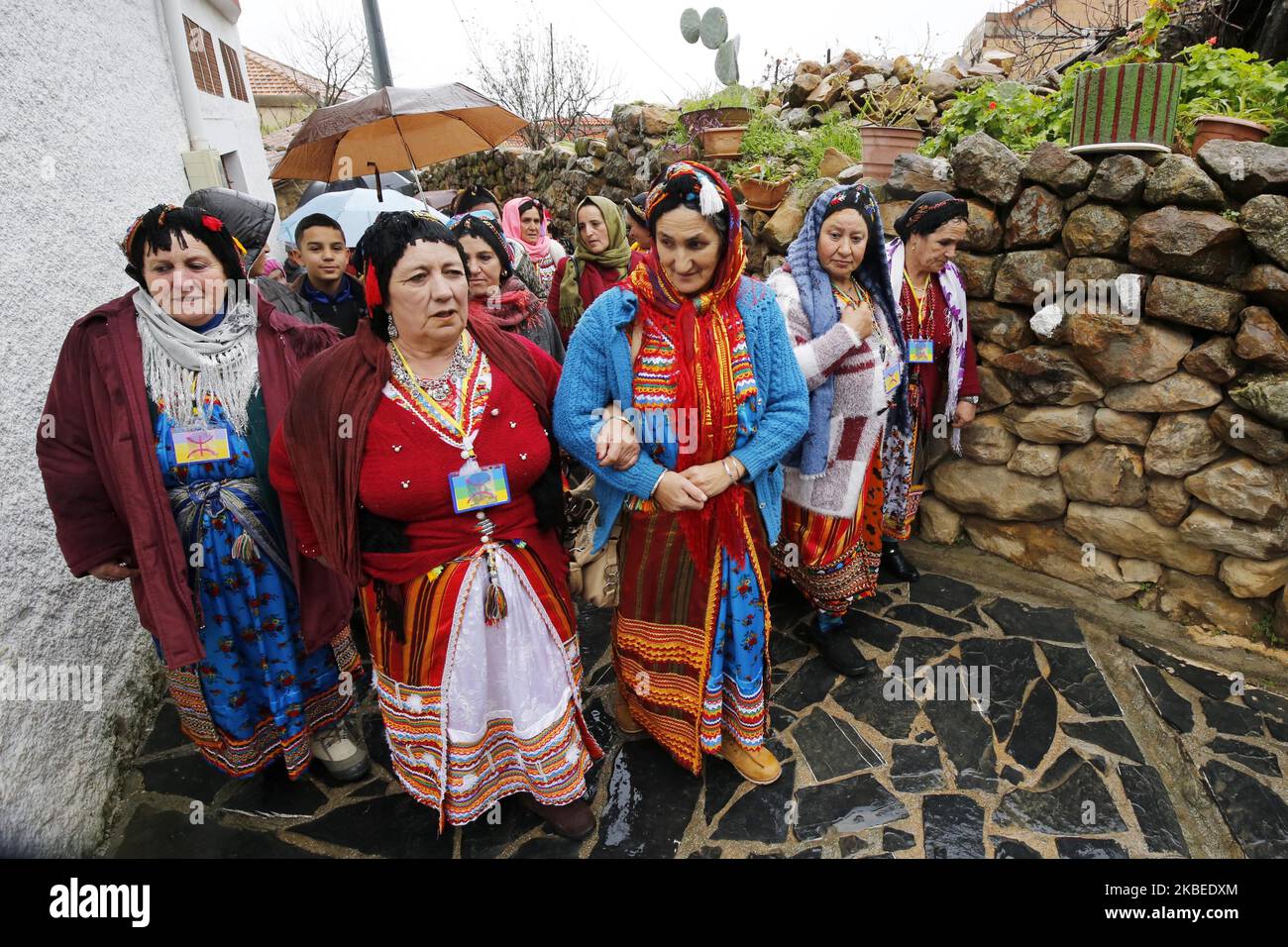What is celebrated on January 1st in Algeria?

- Understanding January 1st Celebrations in Algeria
- The Significance of New Year's Day in Algerian Culture
- Traditional Practices and Festivities on January 1st in Algeria
- How January 1st is Celebrated Across Different Regions of Algeria
- Exploring the Historical Context of January 1st Celebrations in Algeria
Understanding January 1st Celebrations in Algeria
In Algeria, January 1st marks a significant day known as the Amazigh New Year, or Yennayer. This celebration is deeply rooted in the Amazigh (Berber) culture and is recognized as a time to honor traditions, family, and community. The festivities usually last for several days, highlighting the rich history and cultural heritage of the Amazigh people, who have inhabited North Africa for thousands of years.
Traditional Foods play a vital role in the January 1st celebrations. Families often prepare special dishes to mark the occasion, with a focus on traditional recipes that have been passed down through generations. Some popular foods include:
- Rechta: A type of pasta served with chicken and a variety of spices.
- Taam: A dish made from boiled wheat, often served with meat and vegetables.
- Dolma: Stuffed vegetables, usually with a mix of rice, meat, and herbs.
In addition to food, the celebrations are characterized by music and dance. Traditional Amazigh music is played, often accompanied by vibrant dances that bring communities together. These gatherings provide an opportunity for people to express their cultural identity and strengthen familial bonds, showcasing the importance of unity and togetherness in Amazigh culture.
Another essential aspect of the January 1st celebrations is the symbolism of renewal. As a new year begins, it is customary for individuals to reflect on the past year and set intentions for the year ahead. This includes not only personal goals but also a collective aspiration for the community's well-being. The festivities often incorporate rituals and customs that signify new beginnings, emphasizing the hope for prosperity and peace in the coming year.
The Significance of New Year's Day in Algerian Culture
New Year's Day, or Jour de l'An, holds a special place in Algerian culture, reflecting a blend of traditional and modern influences. Celebrated on January 1st, this day marks the beginning of the Gregorian calendar year and is an occasion for family gatherings, festive meals, and cultural rituals. Although Algeria has a rich history of celebrating the Amazigh New Year, known as Yennayer, on January 12th, the Western New Year has gained popularity, particularly among the urban population.
One of the most significant aspects of New Year's Day in Algeria is the emphasis on family and community. Many Algerians take this opportunity to reconnect with loved ones, often hosting large gatherings that feature traditional dishes. Families prepare special meals that may include couscous, mechoui (roast lamb), and a variety of sweets. These culinary traditions not only symbolize abundance and prosperity for the coming year but also serve to strengthen familial bonds and cultural identity.
Moreover, the celebration of New Year's Day is marked by various customs and practices. For instance, it is common for people to exchange wishes of health and happiness, often accompanied by small gifts or tokens of appreciation. Some Algerians engage in fireworks displays or community events, adding a festive atmosphere to the day. This blend of joyous activities helps foster a sense of unity and hope as people look forward to the year ahead.
In urban areas, the celebration may also take on a more modern flair, with parties and public events that attract both young and old. This evolution of the New Year's celebration reflects Algeria's dynamic cultural landscape, where traditional values coexist with contemporary lifestyles. As a result, New Year's Day serves not only as a time for reflection and renewal but also as an occasion to celebrate the rich tapestry of Algerian identity.
Traditional Practices and Festivities on January 1st in Algeria
In Algeria, January 1st marks not only the start of the New Year but also aligns with the celebration of the Amazigh New Year, known as Yennayer. This day is steeped in cultural significance, reflecting the rich heritage of the Amazigh people. Celebrated predominantly in Kabylie and other regions, Yennayer is a time for family gatherings, cultural rituals, and traditional feasting.
One of the most notable practices on this day is the preparation of a special dish called couscous, often made with a variety of vegetables and meat. Families come together to share this meal, which symbolizes unity and abundance for the year ahead. Additionally, it is common to prepare a traditional bread called tabouna, which is baked in clay ovens and served fresh during the festivities.
During Yennayer, various festivities take place, including music and dance performances that highlight the vibrant Amazigh culture. Traditional songs and dances, such as the raï and chaabi genres, fill the air, creating a lively atmosphere. People often dress in colorful traditional attire, showcasing the unique patterns and designs representative of their heritage.
In many communities, rituals are performed to ensure a prosperous year, such as lighting bonfires or making symbolic offerings. These practices not only honor ancestors but also serve as a means of cultural preservation. Overall, January 1st in Algeria is a vibrant celebration of identity, community, and the hope for a fruitful year ahead.
How January 1st is Celebrated Across Different Regions of Algeria
In Algeria, January 1st marks not only the beginning of the New Year but also coincides with the celebration of the Amazigh New Year, known as Yennayer. This dual significance imbues the day with cultural richness and regional diversity. Various regions across Algeria celebrate this day with unique traditions that reflect their local customs and heritage.
Festivities in Kabylie
In the Kabylie region, January 1st is a vibrant celebration filled with cultural significance. Families gather to prepare traditional dishes, with couscous being a staple. The preparation of Yennayer bread, a special type of bread made from barley, is an essential part of the festivities. In addition to culinary traditions, the day often features folk music and dance, showcasing the region's rich Amazigh heritage. Elders share stories and wisdom, reinforcing family bonds and cultural identity.
Celebrations in the Sahara
In the southern regions, particularly in the Sahara, the New Year is celebrated with a blend of traditional and modern practices. Communities often hold public gatherings where they engage in storytelling, music, and dance. Traditional crafts and local arts are showcased, emphasizing the importance of preserving cultural heritage. The Saharan people also prepare special meals that highlight local ingredients, such as dates and lamb, which are central to their culinary traditions.
Urban Celebrations in Algiers
In Algeria's capital, Algiers, January 1st is celebrated with a more contemporary flair. The streets are adorned with decorations, and various events take place, including concerts and public festivities. Many people take the opportunity to spend time with family and friends, often dining in restaurants or attending cultural events. Fireworks light up the night sky, symbolizing hope and new beginnings as the city embraces the New Year with joy and excitement.
Exploring the Historical Context of January 1st Celebrations in Algeria
January 1st holds a significant place in Algeria's cultural and historical landscape, primarily as it marks the celebration of the New Year in the Berber calendar, also known as Yennayer. This date not only represents the beginning of a new year but also reflects the rich traditions and history of the Berber people, who have inhabited the region for thousands of years. The celebration of Yennayer is deeply rooted in agricultural cycles and signifies the renewal of life, making it a pivotal time for communities to come together in festivity.
Historically, January 1st has been a time for various rituals and customs that highlight the importance of family and community in Algerian society. Many families engage in the preparation of traditional dishes, such as couscous and baklawa, which are shared among relatives and neighbors. This communal aspect of the celebration fosters a sense of unity and reinforces cultural ties. In many regions, people also partake in ceremonial activities, including the lighting of fires and the performance of folk dances, which serve to honor ancestral traditions and promote cultural heritage.
In addition to its Berber roots, January 1st also coincides with the New Year celebrations observed in various parts of the world. The influence of globalization and modernity has led to a blending of traditions, where Algerians may also celebrate the Gregorian New Year with festivities that include fireworks and public gatherings. This duality in celebrations reflects Algeria's diverse cultural influences and its ability to adapt while preserving its historical significance.
The celebration of January 1st in Algeria is not merely a day of festivity; it encapsulates a rich tapestry of history, culture, and identity. From honoring ancestral traditions to embracing contemporary influences, the observance of Yennayer showcases the resilience and dynamism of Algerian culture. Through various customs, rituals, and shared meals, the significance of this day continues to thrive, reminding Algerians of their heritage and the importance of community bonds.
Leave a Reply

Other celebrations and holidays